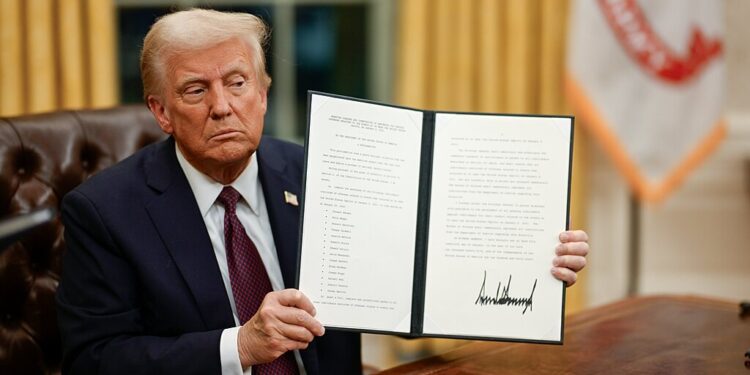In a move that has drawn sharp reactions both domestically and internationally, President Donald Trump has issued an executive order ending all Diversity, Equity, and Inclusion (DEI) programs across federal agencies. Signed on January 20, 2025, the order cites concerns about “radical and wasteful government policies” and claims that DEI initiatives undermine merit-based hiring practices.
Executive order details and rationale
The order mandates the suspension of DEI-related programs and policies in all federal institutions, with plans to reallocate associated budgets to “core government functions.” It also calls for the termination of DEI officers and advisers across agencies, citing the need to reduce “unnecessary bureaucracy.” In the official statement released by the White House, President Trump described the programs as “ideological experiments that harm productivity and unity.”
The administration emphasized that the new directive aims to restore fairness by eliminating what it calls “reverse discrimination.” Critics, however, argue that the move erases years of progress in fostering inclusivity and addressing systemic inequities.
Mixed reactions from stakeholders
Supporters of the decision, including conservative think tanks and business groups, have lauded the order as a long-overdue correction. Senator Tom Cotton, a prominent Republican, praised the measure, stating, “Meritocracy is the cornerstone of a functional and fair society. DEI programs have been weaponized to divide us instead of uniting us.”
Opposition has been swift and vocal. Civil rights organizations and advocacy groups have condemned the order, warning of its potential to exacerbate inequalities in federal employment. “His appalling executive order will only worsen America’s racial hierarchy and benefit the oligarch class,” said the NAACP in a statement on X. Leading Democrats, including Senate Majority Leader Chuck Schumer, pledged to challenge the decision in Congress.
Potential impact on South Asian communities
While the executive order does not single out specific ethnic or religious groups, there is concern about its potential impact on South Asian communities, including Indians, who have benefited from DEI initiatives in federal employment. The dismantling of these programs may affect the representation and advancement opportunities for these groups within federal agencies.
Raju Rajagopal, co-founder, Hindus for Human Rights, advocacy organisation, said via X, “My sympathies with Hindu supremacists who voted for Trump, supported people like Vivek, Bannon, and other supremacists. Their ‘hard work’ has finally paid off: the Indian American community has become an ugly target of hate and mockery.”
However, specific data or studies detailing the direct impact on South Asians are not yet available.
Could Australia adopt a similar stance?
The question of whether Australia might follow in the United States’ footsteps has generated debate. While no Australian political party has explicitly expressed support for dismantling DEI programs, some commentators believe the issue could emerge during the next federal election cycle.
Judy Lundy, Lecturer in Management, and Uma Jogulu, Senior Lecturer at the School of Business and Law, both from Edith Cowan University, writing in The Conversation, argue that Australia is unlikely to adopt such measures. They highlight Australia’s stronger legal frameworks and cultural values supporting diversity. “Unlike the United States, Australia’s DEI programs are deeply embedded in both legislation and the corporate sector,” they write. “Any move to dismantle these initiatives would likely face substantial public and institutional pushback.”
Despite this, some conservative voices in Australia, including members of minor parties, have occasionally criticized DEI initiatives as costly and ineffective. Analysts suggest that while the issue may not dominate political discourse, it could become a point of contention in certain sectors.
Broader implications
President Trump’s executive order has reignited global discussions about the role of government in addressing diversity and inclusion. With the 2024 U.S. presidential election marking the return of Trump to the White House, the decision underscores his administration’s broader agenda of dismantling progressive policies enacted in recent decades.
As debates continue in the U.S., eyes remain on how other nations, including Australia, navigate the complex intersection of equity, governance, and public policy.











